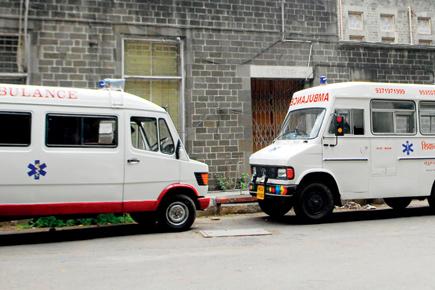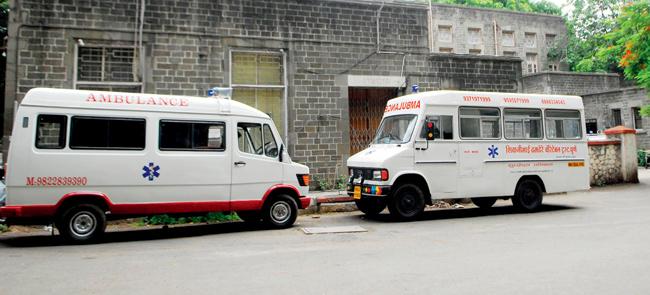While fitness checks need to be conducted yearly to ensure that the vehicle is safe for patients, hundreds of ambulances have been running without certification

Vehicles
Most times a medical emergency arises, the first call is made to summon an ambulance because it is thought to be the quickest and safest way to reach medical care. However, it could get harder to keep faith in private ambulances with the Pune Regional Transport Office (RTO) revealing that almost 42 per cent of them may not even be fit to carry patients.
ADVERTISEMENT

The ambulance fitness check involves testing the vehicles’ roadworthiness, as well as other aspects such as whether its siren and beacon are working. File pic
According to RTO records, out of the 1,351 private ambulances in Pune and the PCMC area, only 790 have the required fitness certificate. The fitness certificate for ambulances needs to be renewed each year, after a thorough test. However, 561 ambulances in the city have not had their certificates renewed since 2012.

Quick and inexpensive
The process itself is very short, and affordable. Road Transport Officer Jitendra Patil said, “The test is conducted in 45 minutes and the total cost is R300. During the process, we check the condition of the brakes, tyres, head and tail lights and the indicators to see whether they are in good condition. Besides this we also check whether the siren’s sound and the blue light fitted on the ambulance are working.”
Because ambulances provide an essential service, the RTO will not seize the vehicles, but will instead issue notices to hospitals. “Ambulances being essential service vehicles, we cannot check documents or take action on the road or at the hospitals. Therefore we will first send a notice asking the hospitals to get the fitness certificate renewed in the next 30 days. If they fail to get the certificate renewed, action will be taken as per the rule,” said Patil.
D G Kulkarni, medical superintendent of Sassoon Hospital said, “There are two types of medical ambulances. One is for basic life support with first aid kit, stretcher and oxygen cylinders etc. The advance life support ambulances are equipped with oxygen cylinder, stretcher, blood pressure machine, ventilator, suction machine, mask, first-aid kit, nurses, doctors and technicians.”
No accountability
Kulkarni added, “Government-aided ambulances are checked by the concerned officer, but there is no way to check private ambulances. Moreover, no one has records to keep track of the facilities that the ambulances are equipped with.”
Lack of control over the operations of private ambulances is an issue that has bothered the PMC’s health department in the past too. Chief Medical Officer (health) at the PMC, Somnath Pardeshi said, “The PMC does not have the right to check facilities in private ambulances or the amount they charge the passengers. There should be some arrangements made wherein we can check the ambulances and see the kind of service that they provide.”
 Subscribe today by clicking the link and stay updated with the latest news!" Click here!
Subscribe today by clicking the link and stay updated with the latest news!" Click here!






